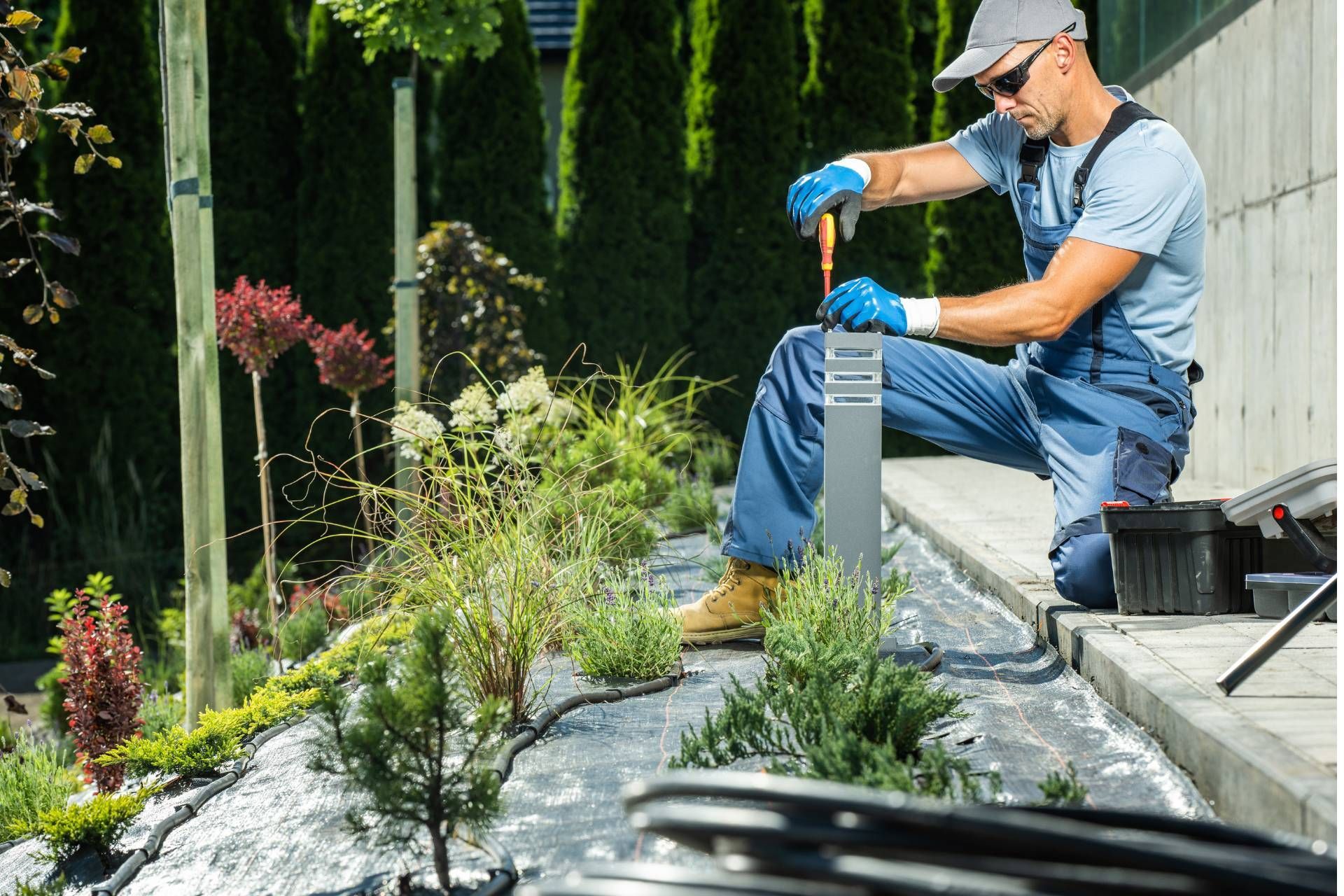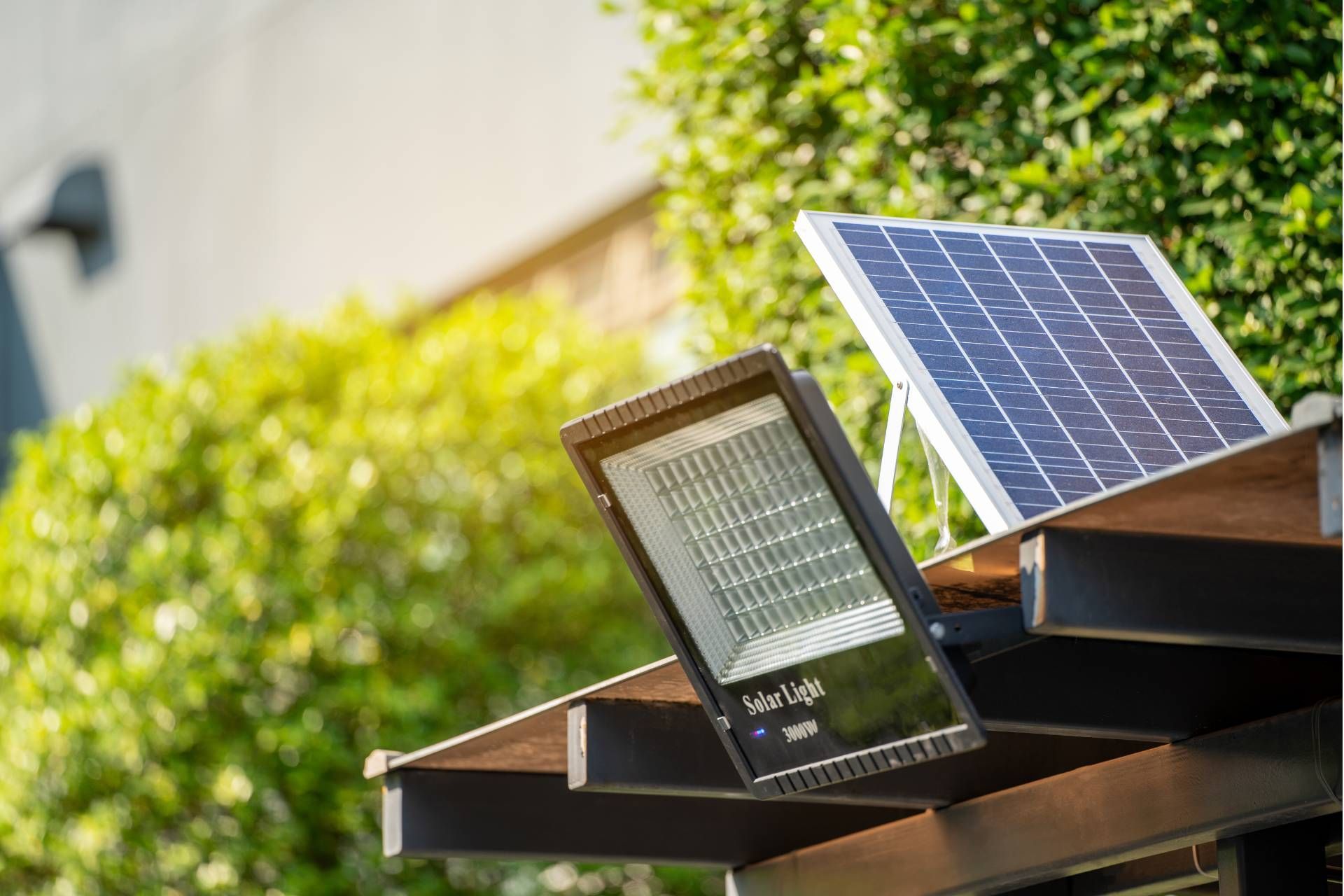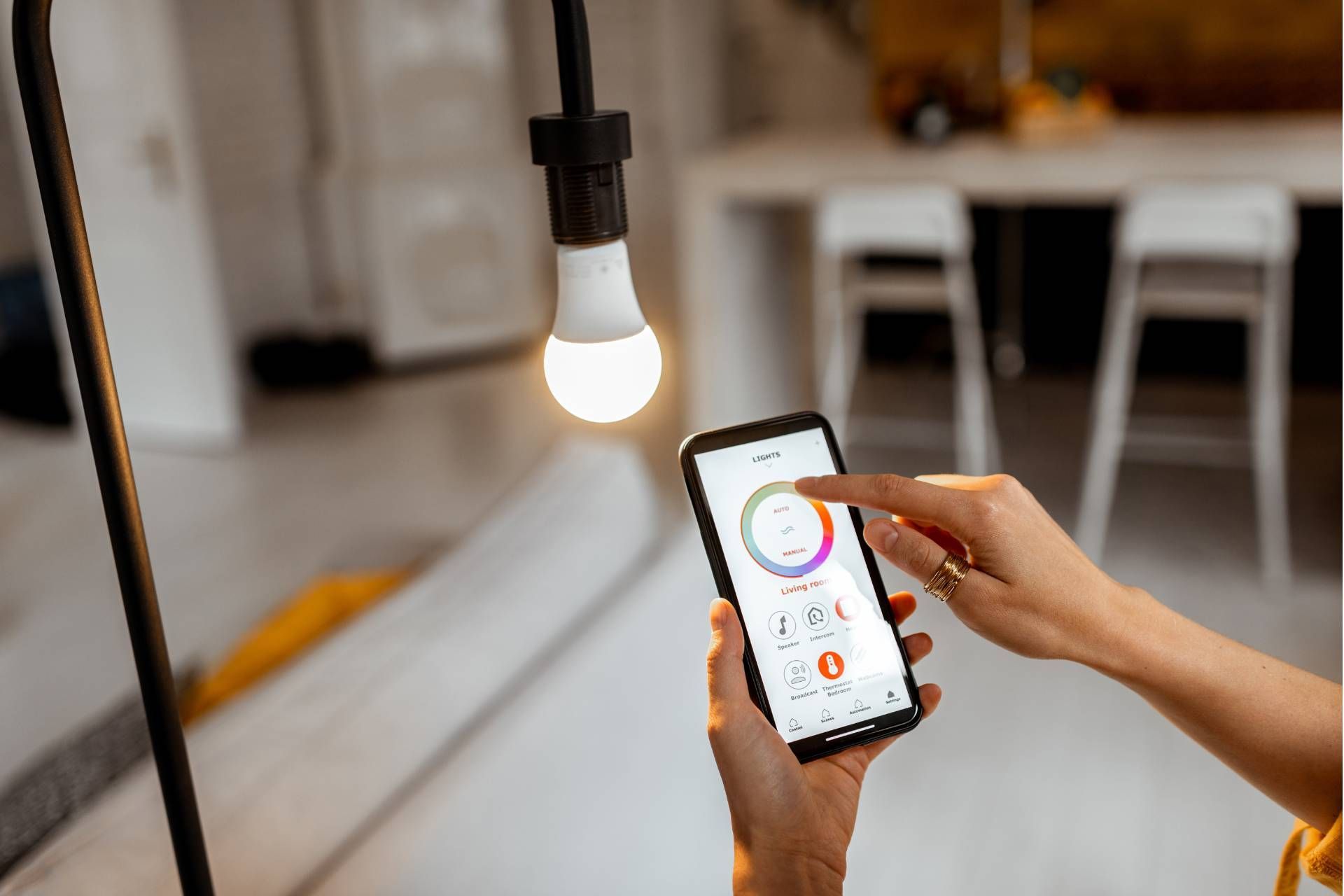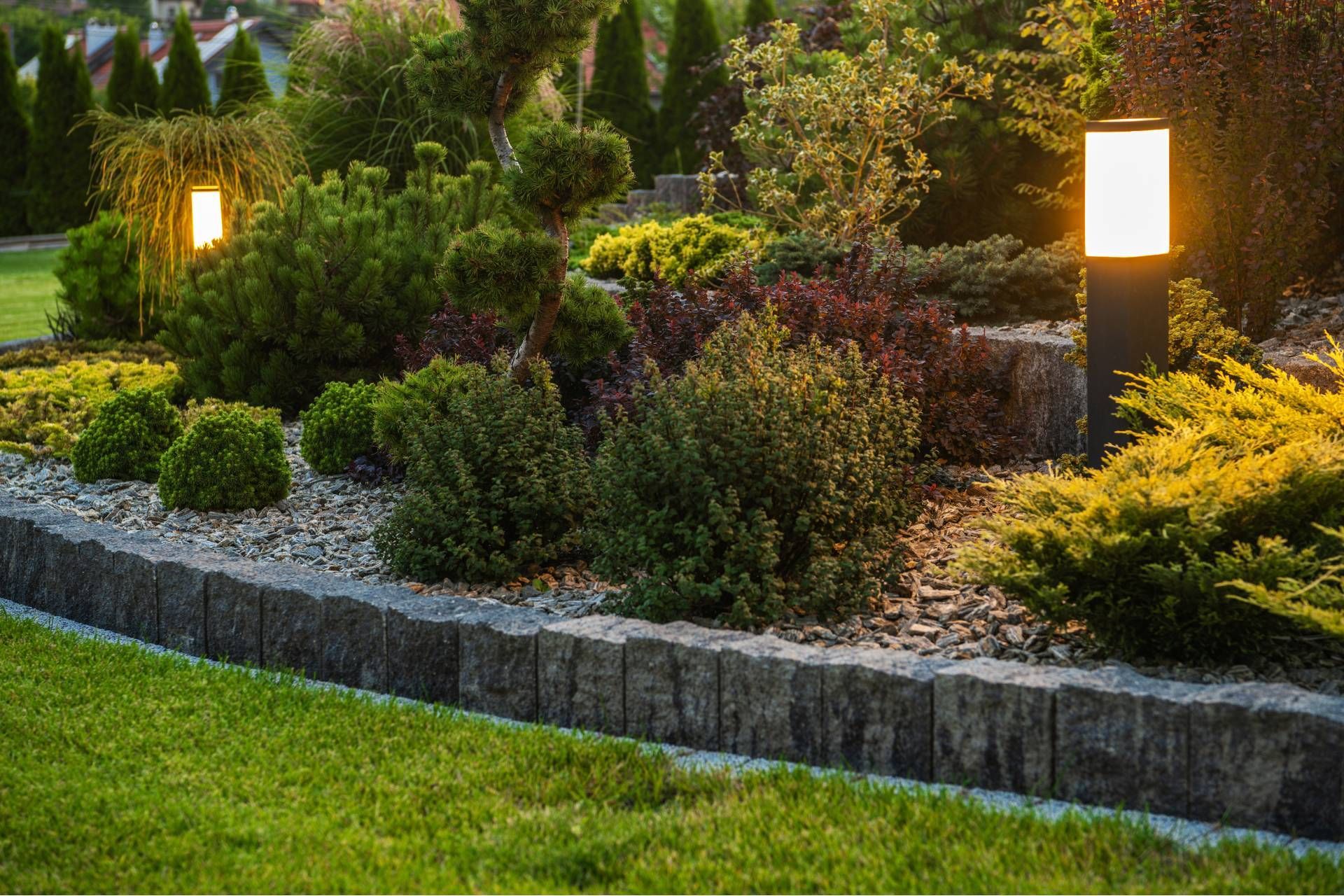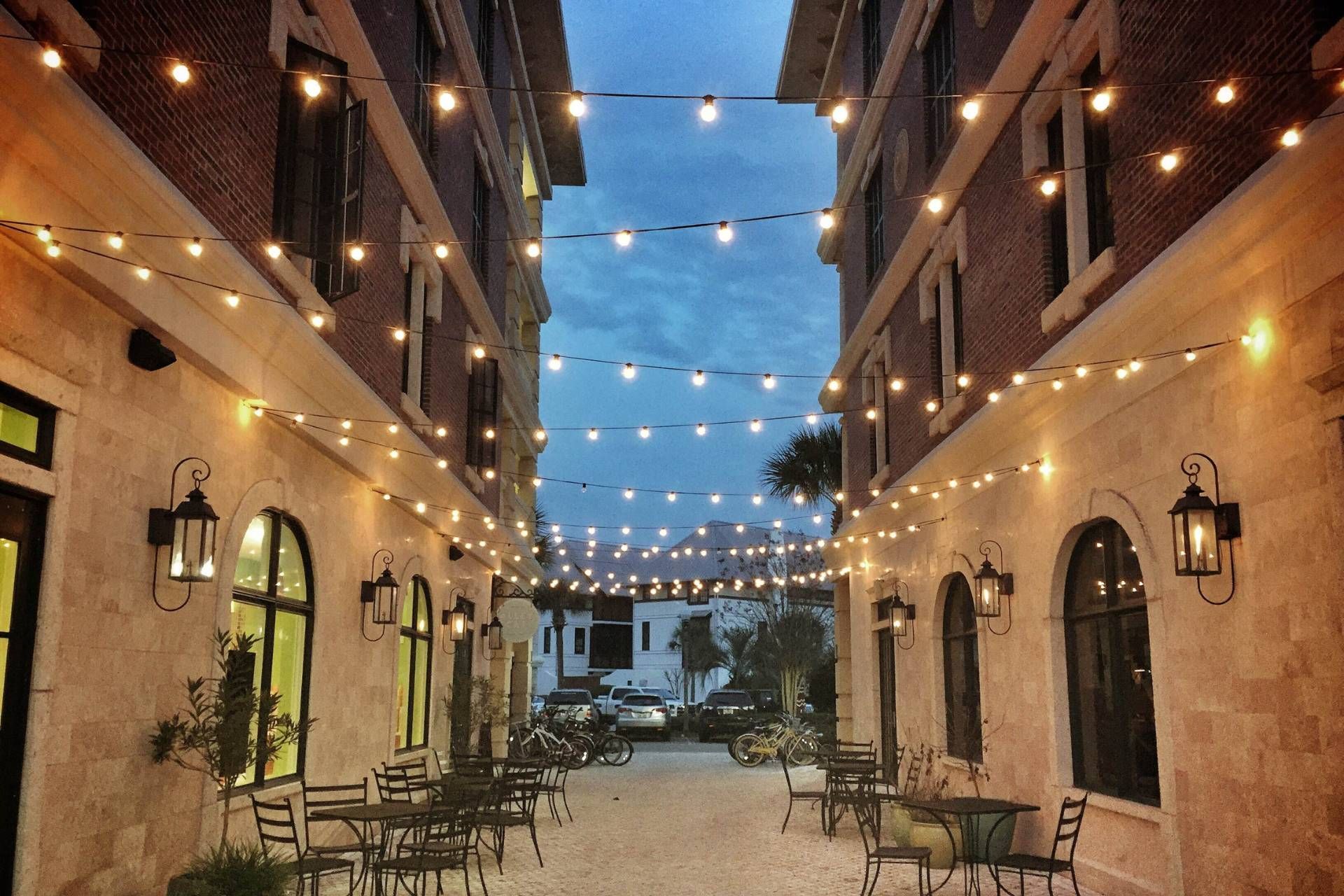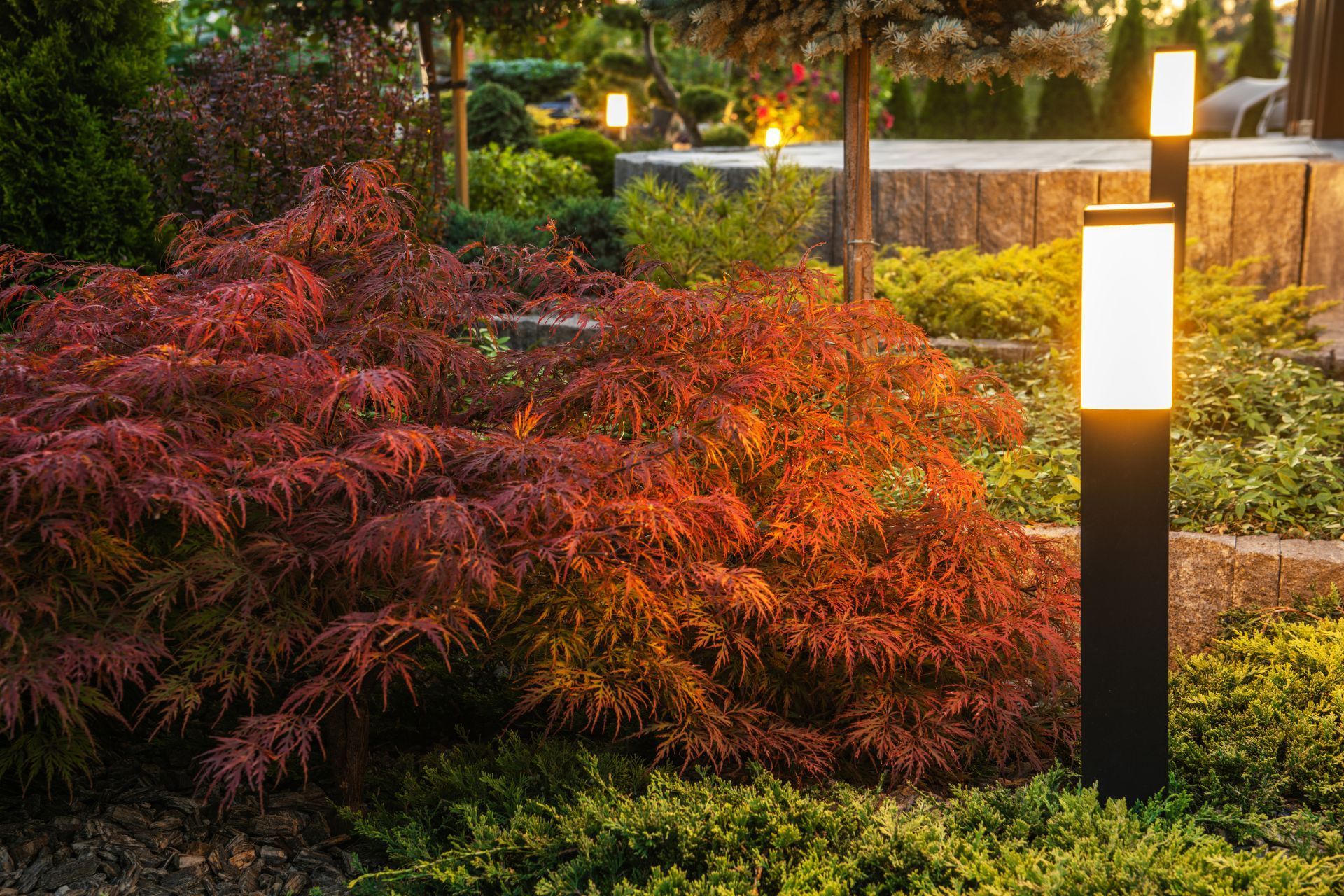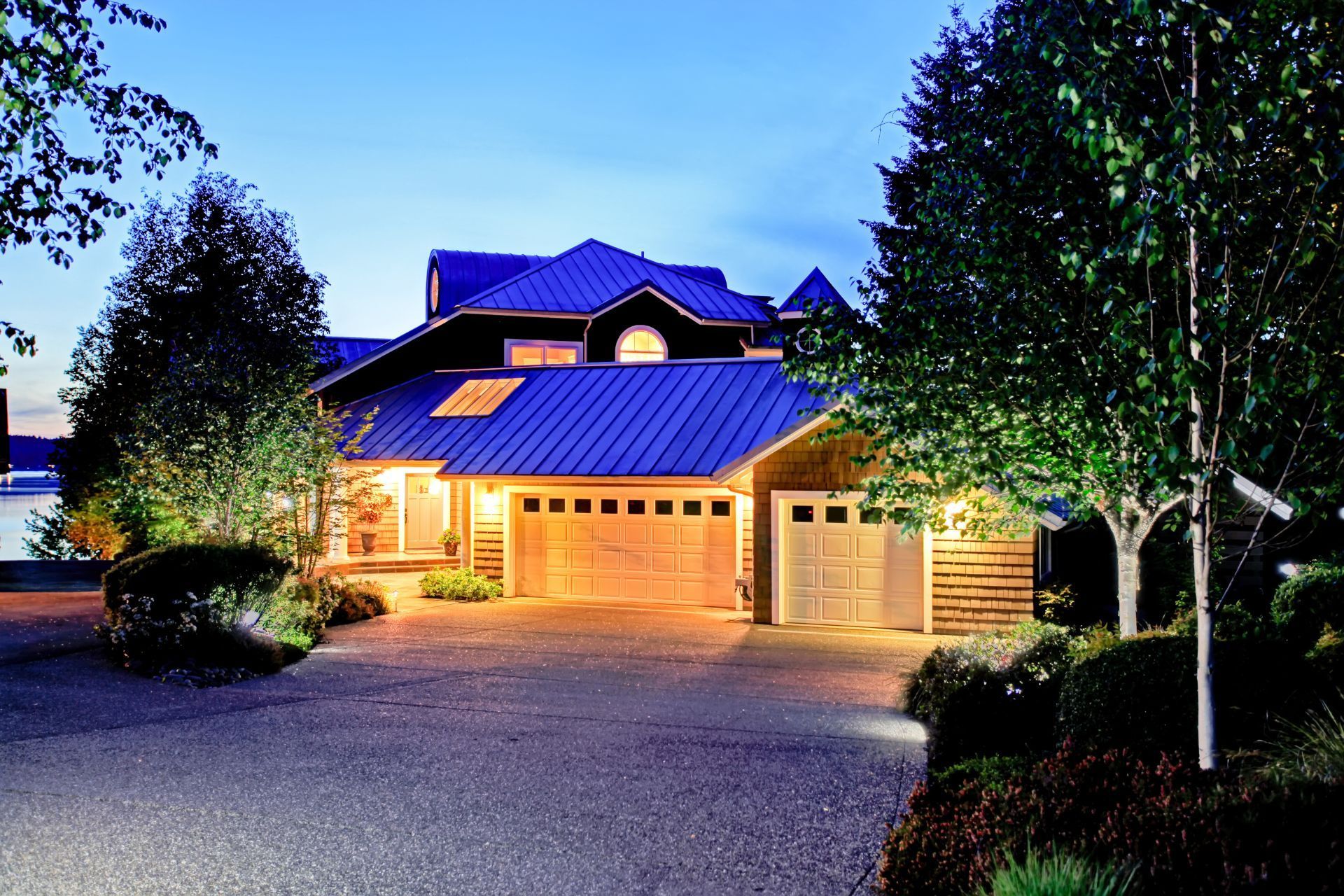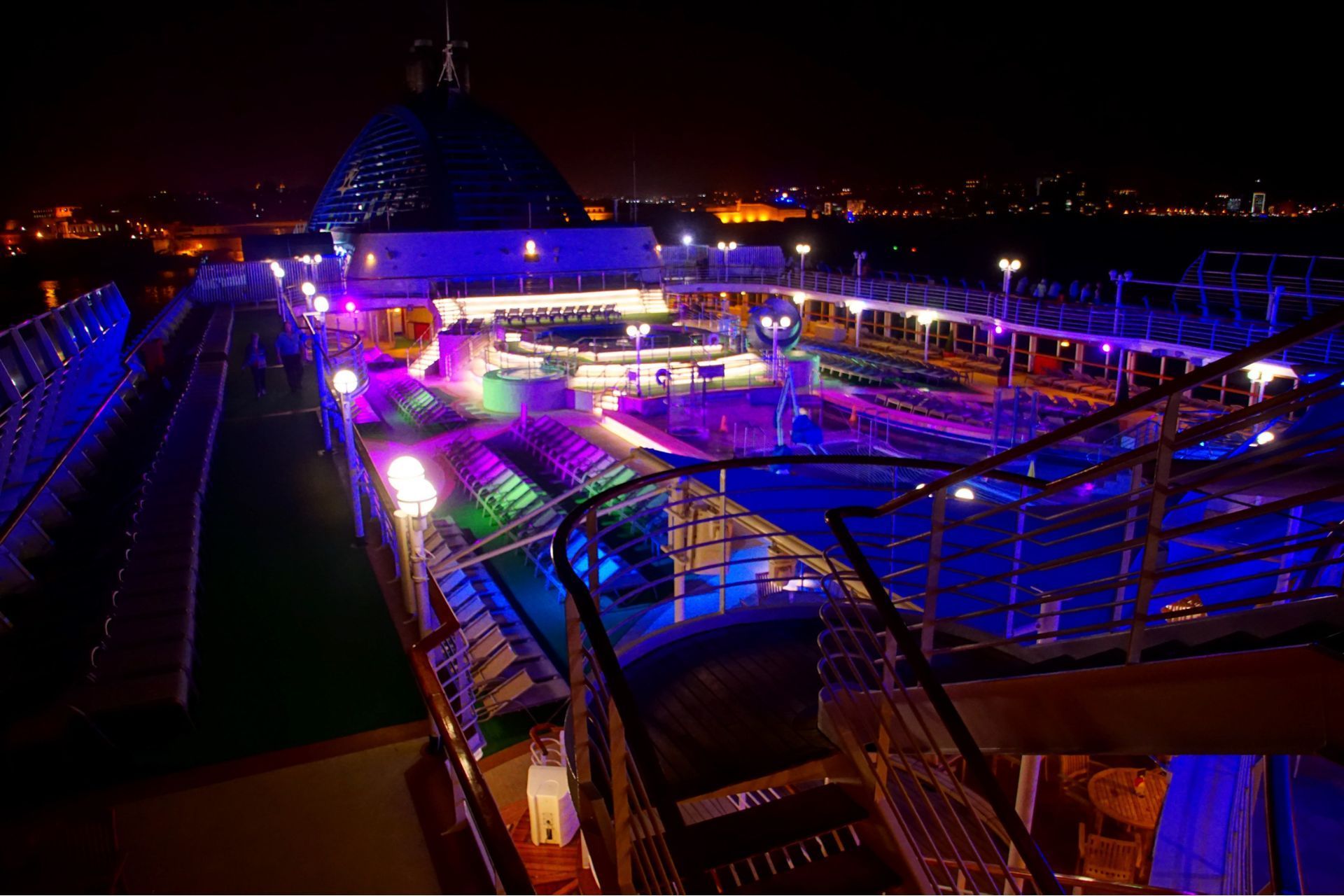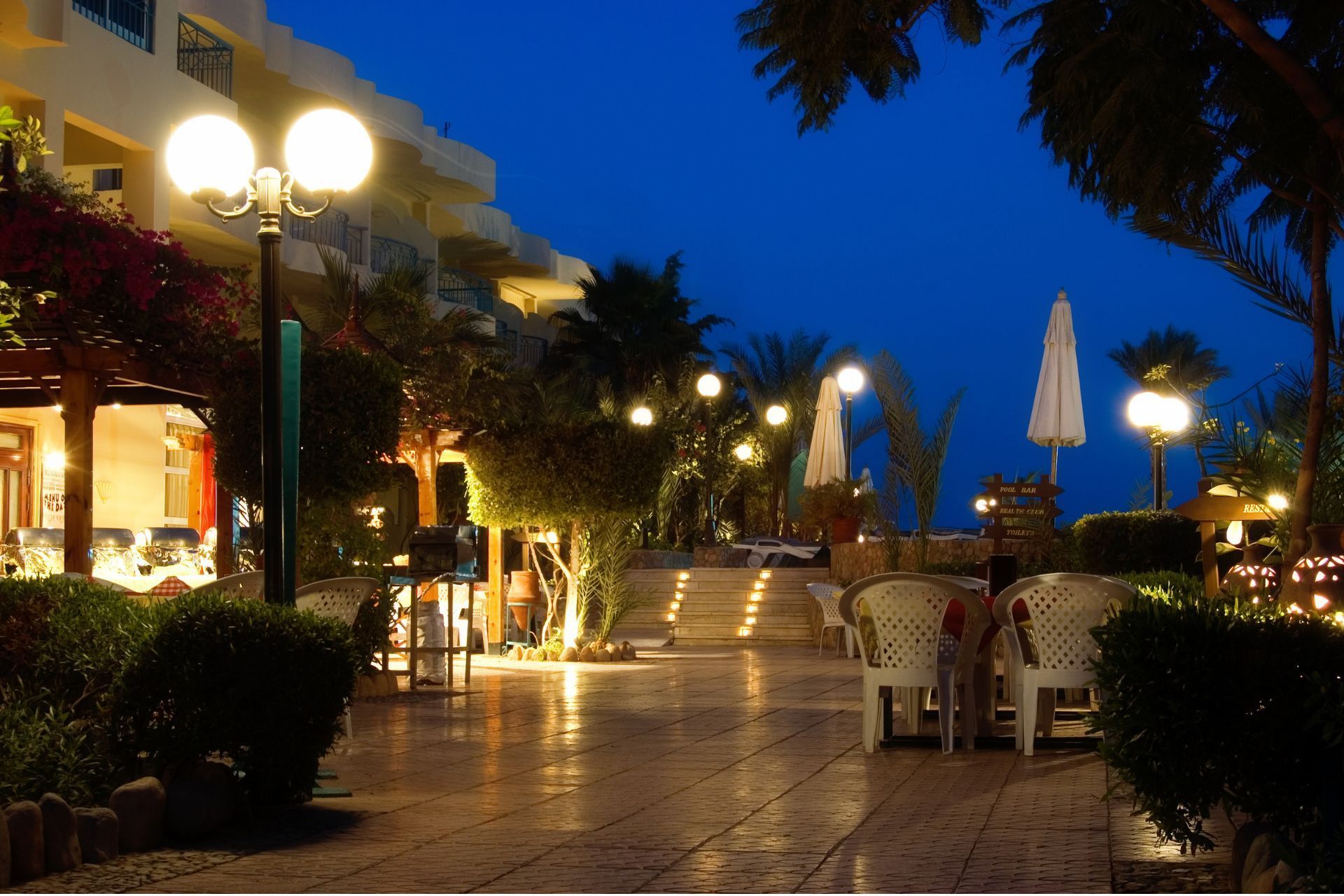When is the Best Time to Install Outdoor Lighting?
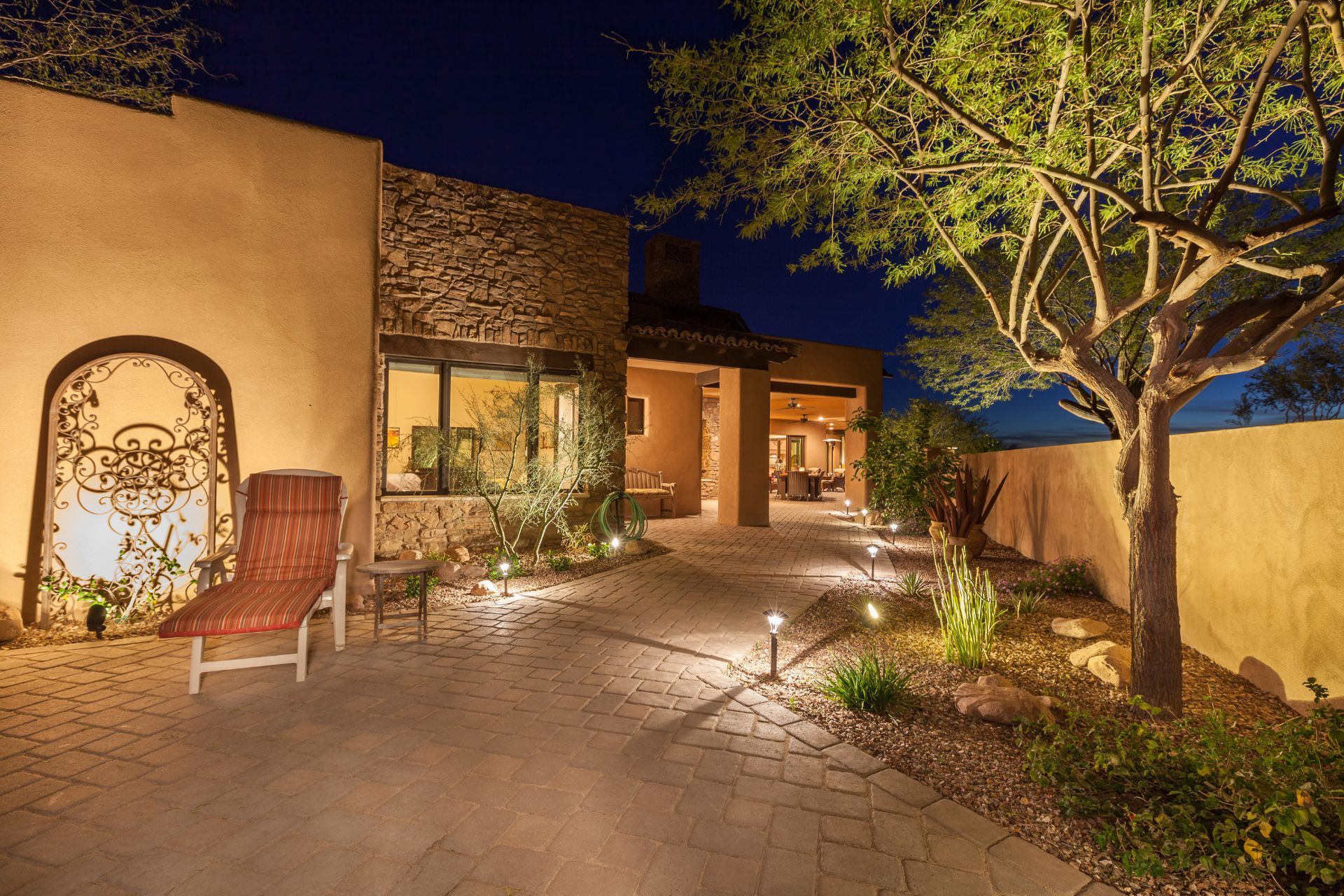
Adding outdoor lighting to your home can not only enhance its aesthetics but also improve safety and security. When it comes to installing outdoor lighting, timing is key. However, deciding when is the best time to install outdoor lighting can be a tricky decision.
Here are some considerations to help you decide when to install outdoor lighting.
Seasonal Considerations
1. Spring and Fall:
- Mild Weather: These seasons typically offer mild weather, making it easier and more comfortable to work outdoors.
- Soil Conditions: The ground is usually not frozen in spring or fall, which is ideal for installing fixtures and running wiring underground.
- Daylight Hours: Longer daylight hours in spring and fall provide more time to work on outdoor projects without the need for artificial light.
2. Summer:
- Extended Daylight: Longer daylight hours can give you more time to complete the installation.
- Dry Conditions: Generally, summer months have less rain, making it easier to work outdoors without interruption.
- Vegetation: Be mindful of plants and gardens in full bloom, as you may need to navigate around them.
3. Winter:
- Limited Daylight: Shorter days mean less natural light to work by, potentially extending the duration of the project.
- Cold Weather: In colder climates, the ground can be frozen, making it difficult to dig and install wiring.
- Holiday Lighting: If you are installing lighting for holiday decorations, winter might be the ideal time despite the challenges.
Project-Specific Considerations
- Landscaping Projects: If you are planning major landscaping projects, it’s best to coordinate the lighting installation with these projects to ensure an integrated design and minimize disruption.
- Home Renovations: If you are renovating your home’s exterior or adding new features like a deck or patio, plan to install outdoor lighting as part of the overall project.
- Security Concerns: If you have immediate security concerns, it’s advisable to install outdoor lighting as soon as possible, regardless of the season.
Budget Considerations
One of the first things to consider when installing outdoor lighting is the cost of the fixtures themselves. There are a wide variety of options available, from simple stake lights to elaborate wall sconces and post lights. It's important to choose fixtures that not only fit your budget but also complement the style of your home.
You'll also need to consider the cost of installation. If you're handy with tools, you may be able to install the lighting yourself. However, if you're not comfortable with DIY projects, you may need to hire a professional electrician to ensure the job is done safely and correctly. Be sure to get quotes from multiple electricians to find the best price for the job.
Another important factor to consider is the cost of operating the outdoor lighting. LED lights are the most energy-efficient option, but they can have a higher upfront cost. However, over time, they will save you money on your electricity bill compared to traditional incandescent bulbs. It's important to consider the long-term cost savings when choosing lighting options.
Don't forget to factor in the cost of maintenance. Outdoor lighting fixtures are exposed to the elements and may require periodic cleaning or bulb replacement. Be sure to budget for these ongoing costs to keep your lighting looking its best.
Practical Tips for Installation
- Professional Assistance: If you’re not experienced with electrical work, consider hiring a professional to ensure the installation is done safely and correctly.
- Permits and Regulations: Check local building codes and regulations to ensure compliance. Some areas may require permits for outdoor lighting installations.
- Energy Efficiency: Consider installing energy-efficient LED lights and using timers or motion sensors to reduce energy consumption and increase the lifespan of your lighting system.
By considering these factors and planning accordingly, you can choose the best time to install outdoor lighting that meets your needs and enhances your property's security and aesthetic appeal.


